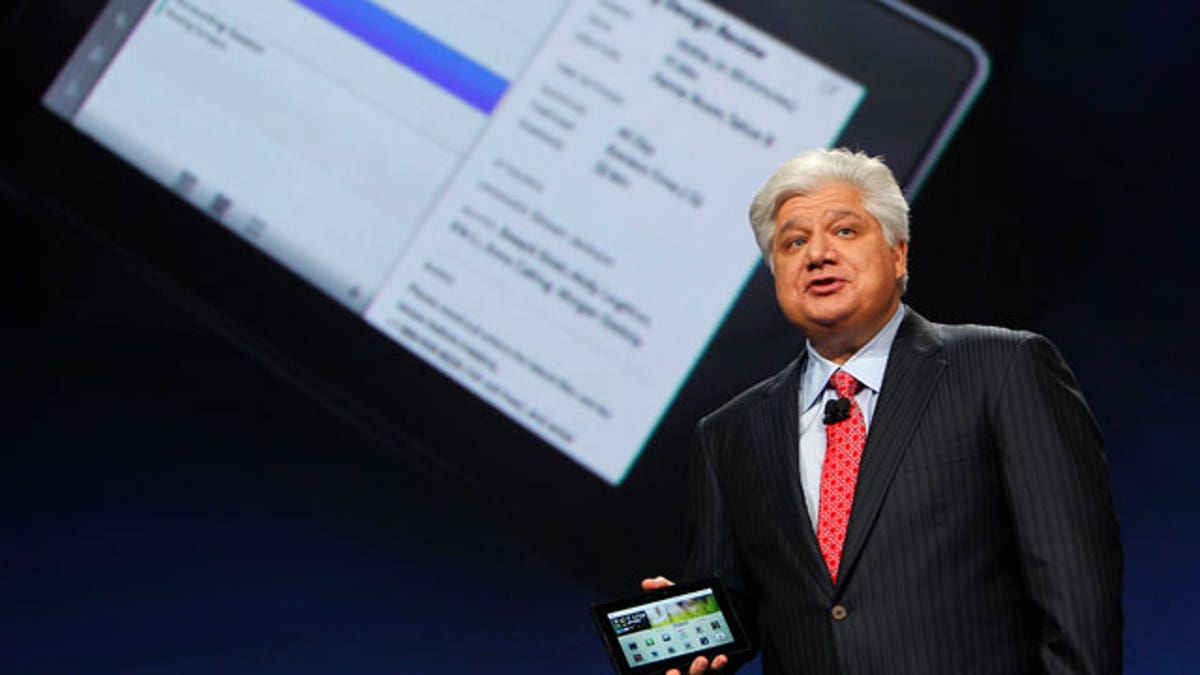
(Reuters)
Why would you want another computer? Why pay more than $800 for a big, heavy iPod Touch? Why are consumer electronics companies falling all over themselves trying to introduce their own tablet PCs this fall?
Because the Apple iPad makes a great TV buddy.
Let me explain.
Many buyers are choosing a tablet computer -- specifically Apple's iPad, the clear leader in the space -- instead of a laptop these days. Best Buy admitted as much recently, saying the iPad was cannibalizing sales of notebooks. (Later, the company backtracked, noting that the death of the PC was "grossly exaggerated.")
With sales nearing 3 million and sky-high predictions for the coming year, the iPad has other companies scrambling. Dell already offers the Streak, a $299 (with a 2-year cell contract) tablet-like phone with a 5-inch screen. Samsung just showed off its Galaxy Tab, a Google Android-based tablet with a 7-inch screen that bests the iPad by including front and back cameras for video calls.
Monday night, the Blackberry Playbook joined the crowd. And Toshiba and Hewlett-Packard have plans to introduce similarly sized tablets before the holiday shopping season.
In the case of the iPad, why would anyone pay twice the price of a full laptop computer for a device that can't do half of the things a notebook can do? Put simply, the iPad is the perfect coffee table book for the living room.
For more than two decades computer makers have been trying to get computers into the hands of America's couch potatoes. WebTV and media extenders and media centers and all manner of PCs have been designed to bring the flexibility of a computer and its digital repository of entertainment to the living room. But most of these ideas proved too expensive or too clunky to satisfy folks used to simply pushing a button to turn on a TV.
So people started smuggling their own computers -- laptops, that is -- into the living room. Sure, it's awkward and anti-social, but the truth is that people wanted to trade e-mails, check up on Facebook friends, and read American Idol tweets during commercials.
What they didn't want to do was read a book. And the iPad is a terrible e-book compared to, say, Amazon's Kindle. The iPad is too heavy (a pound and a half), and it uses an LCD screen, which is like staring at a light bulb, making it less than ideal for pursing War and Peace. But the iPad is perfect for skimming news articles.
Furthermore, the idea of doing work on an iPad is silly -- unless the work you do involves digital finger-painting. There's no keyboard, no memory expansion, no DVD drive, no camera, no phone, and no way to use it conveniently to delve into spreadsheets unless you buy a slew of accessories.
So when I travel, I take a laptop and a Kindle -- and leave the iPad in the family room. True, my seat mate on a recent trip brought his iPad to watch Lord of the Rings on an American Airlines flight that failed to offer a free in-flight movie. But I could have done the same thing on a laptop with a larger screen. Besides, my family would have screamed murder if I'd taken the iPad with me.
That's the point: The iPad is the ideal communal computer because it offers a limitless array of resources that perfectly complement the activity of watching TV. Wondering what Eli Manning's quarterback rating was last year? Pick up the iPad (93.1 for 2009). Arguing about what year Bachman–Turner Overdrive released "Takin' Care of Business"? Look it up on the iPad (1973 -- the DJ was wrong). Want to know how to spell the Iranian president's name? Pick up the iPad (it's Ahmadinejad).
I've even used the iPad to see what's on TV, using the TV Guide app so that I didn't have to disrupt family viewing by calling up the cable company's on-screen guide. And I admit that I've used it find help with my daughter's homework when I was stumped.
So tablet computers can be the ideal supplement to the television, which is why some argue that Apple's $99 Apple TV product is merely a conduit to the iTunes store -- and eventually to the iPad. Notice, as well that your other tablet options this shopping season will largely be based on Google's Android software -- which is also being installed in TVs and set-top boxes.
Although official prices haven't been released yet for most iPad competitors, expect to see the smaller devices hover around $300. That's a more appealing proposition. Just remember, these aren't laptop replacements: They're this generation's coffee table book.
FoxNews.com's SciTech section is on Twitter! Follow us @fxnscitech.
